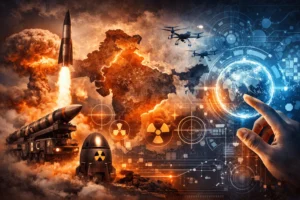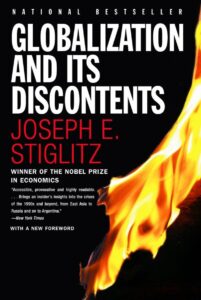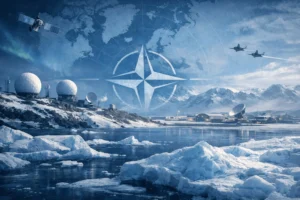ASEAN’s Credibility Crisis in Myanmar: Why Business-as-Usual Is No Longer Tenable

The ASEAN bloc faces mounting pressure as Myanmar’s turmoil challenges its unity and relevance.
More than three years have passed since Myanmar’s military staged a coup, ousting the elected government and plunging the country into chaos. What began as mass protests has evolved into a nationwide resistance movement, with armed groups gaining ground in both urban and ethnic border areas. Yet amid this deepening crisis, the Association of Southeast Asian Nations (ASEAN) remains diplomatically paralyzed—its silence increasingly interpreted not as neutrality, but as complicity.
In April 2021, leaders of the ASEAN met in Jakarta aimed at discussing the disaster. The product of that meeting was the Five-Point Consensus which was a document that assured the cessation of violence, a dialogue of stakeholders, humanitarian aid, and a special envoy. It has been regarded as a local breakthrough. However, since then the consensus has been willfully flouted by the junta and abandoned by ASEAN without any fanfare. Not only has the violence not abated–it has intensified. Villages have been burned to the ground, airstrikes are seen as a weapon of oppression and over two million individuals have been driven out of their homes. The fact that the military ignored ASEAN road map conspicuously has given rise to an undisputed fact that the bloc has no leverage and no will.
This diplomatic sluggishness is entrenched in noninterference policy held by ASEAN. Over the decades, it has been the cement that has kept in place a region with varied political regimes flanked by absolute monarchies to imperfect democracies and plain authoritarian states. The rationale was that whatever was to be saved was unity and not scrutinizing domestic governance. However, this model is being stretched with the Myanmar crisis. What occurs in Myanmar no longer remains in Myanmar. The inflow of refugees in Thailand and India, proliferation of combatant groups along soft borders, and the movement of firearms and personnel are major cross border hazards. The reluctance by ASEAN to declare Myanmar a regional emergency negates not just its credibility but also its overall interest as a region regarding stability.
Equally troubling is the way the bloc’s leadership has handled the crisis. Under Cambodia’s chairmanship in 2022 and Laos’s in 2024, ASEAN reverted to quiet diplomacy, engaging directly with the junta while sidelining Myanmar’s opposition. Even when Indonesia, one of the more assertive member states, led in 2023, progress remained limited. The result is a widening credibility gap between ASEAN and the people of Myanmar, who increasingly see the bloc as an enabler of military rule. Public protests across Southeast Asia have called out ASEAN’s failure to support democratic aspirations. In Myanmar itself, ASEAN’s envoy is viewed with suspicion, often equated with efforts to normalize military rule rather than challenge it.
Meanwhile, China has wasted no time in capitalizing on the vacuum. With large infrastructure projects like the China-Myanmar Economic Corridor (CMEC) moving ahead, Beijing’s influence is growing. Chinese officials have met with junta leaders, supplied surveillance equipment, and maintained energy investments. While Beijing claims to support “stability,” its interests are primarily economic and strategic. This includes access to the Indian Ocean and the protection of pipelines that bypass the Strait of Malacca. In contrast, ASEAN, with far more at stake in terms of regional peace, remains hesitant to even identify the military regime as the source of instability.
It was not always this way. In the past, ASEAN took a stronger line against Myanmar. In 2007, following the brutal crackdown on the Saffron Revolution, the bloc issued rare public statements condemning violence. Later, Myanmar’s road to partial democratization was, in part, facilitated by its desire to improve relations within the region. That momentum has now been completely reversed. What’s changed is not Myanmar, but ASEAN’s collective willingness to act. With rising nationalism and transactional diplomacy dominating the region, solidarity has taken a back seat to self-interest.
Still, options remain—if the political will can be mustered. ASEAN must start by formalizing the junta’s isolation within its own structures. This includes denying military representatives seats at high-level meetings, as was done intermittently in 2022 and 2023. More importantly, the bloc must engage with Myanmar’s National Unity Government (NUG) and ethnic organizations, many of which are now at the forefront of the resistance. This does not mean taking sides in a civil war—it means acknowledging the reality that the junta does not represent the will of the people.
Beyond symbolic gestures, ASEAN should explore regionally coordinated sanctions, particularly targeting arms supplies and illicit financial flows. Joint humanitarian corridors, monitored by neutral parties, could allow aid to reach those displaced without legitimizing the regime. ASEAN must also recognize that neutrality is not the same as inaction. By continuing to treat the junta as a legitimate government, it is sending a clear message: authoritarian violence will be tolerated in the name of regional consensus.
The deeper question is what kind of organization ASEAN wants to be in the coming decade. If it remains beholden to the lowest common denominator, where even one state can block collective action, then its future will be defined by irrelevance. The Myanmar crisis is not just a test of ASEAN’s diplomatic agility—it is a moral reckoning. A regional bloc that claims to represent 600 million people cannot afford to look away as one of its own descends into state collapse.
Myanmar’s people have not given up. Despite airstrikes, arrests, and displacement, they continue to resist, to organize, and to hope. ASEAN owes them more than silence. It owes them clarity, courage, and action. Without it, the regional order that ASEAN has so carefully built will prove fragile when it is needed most.



